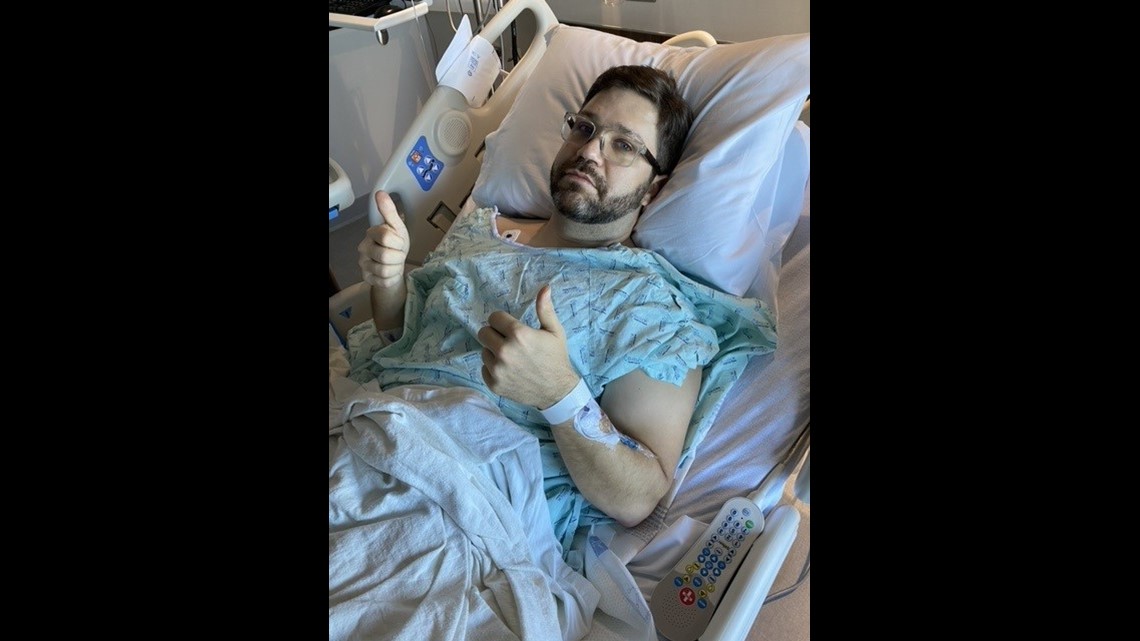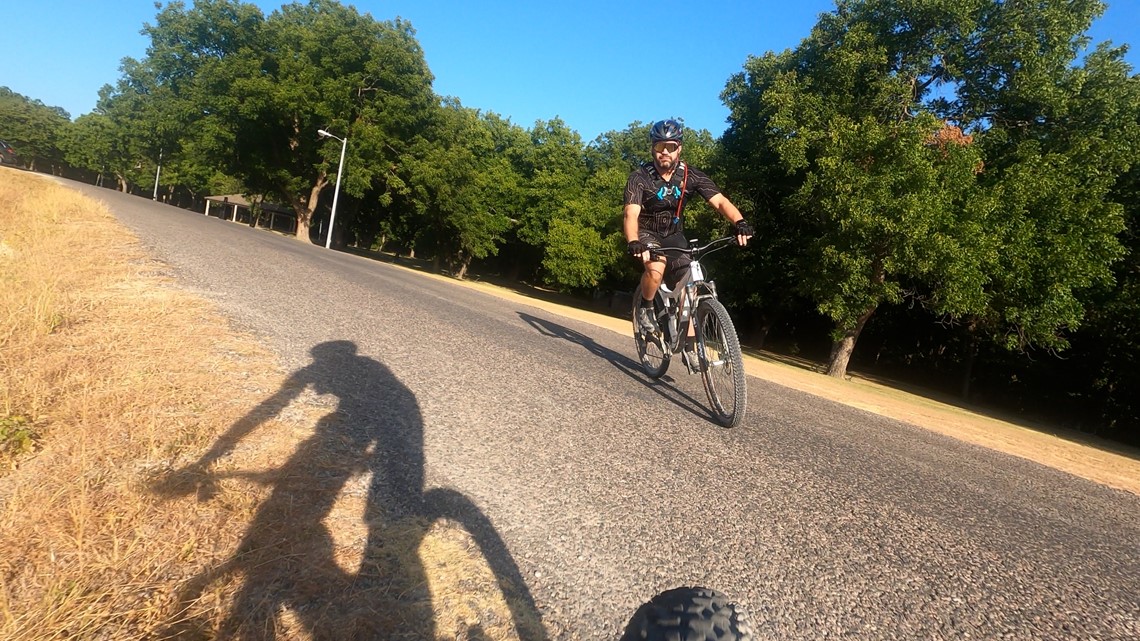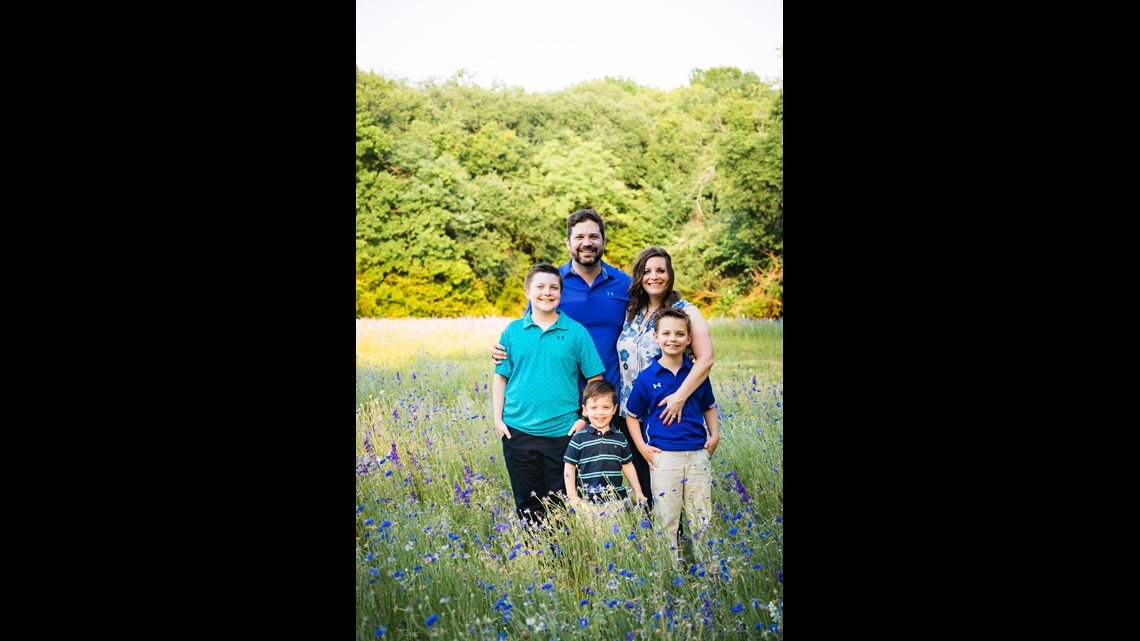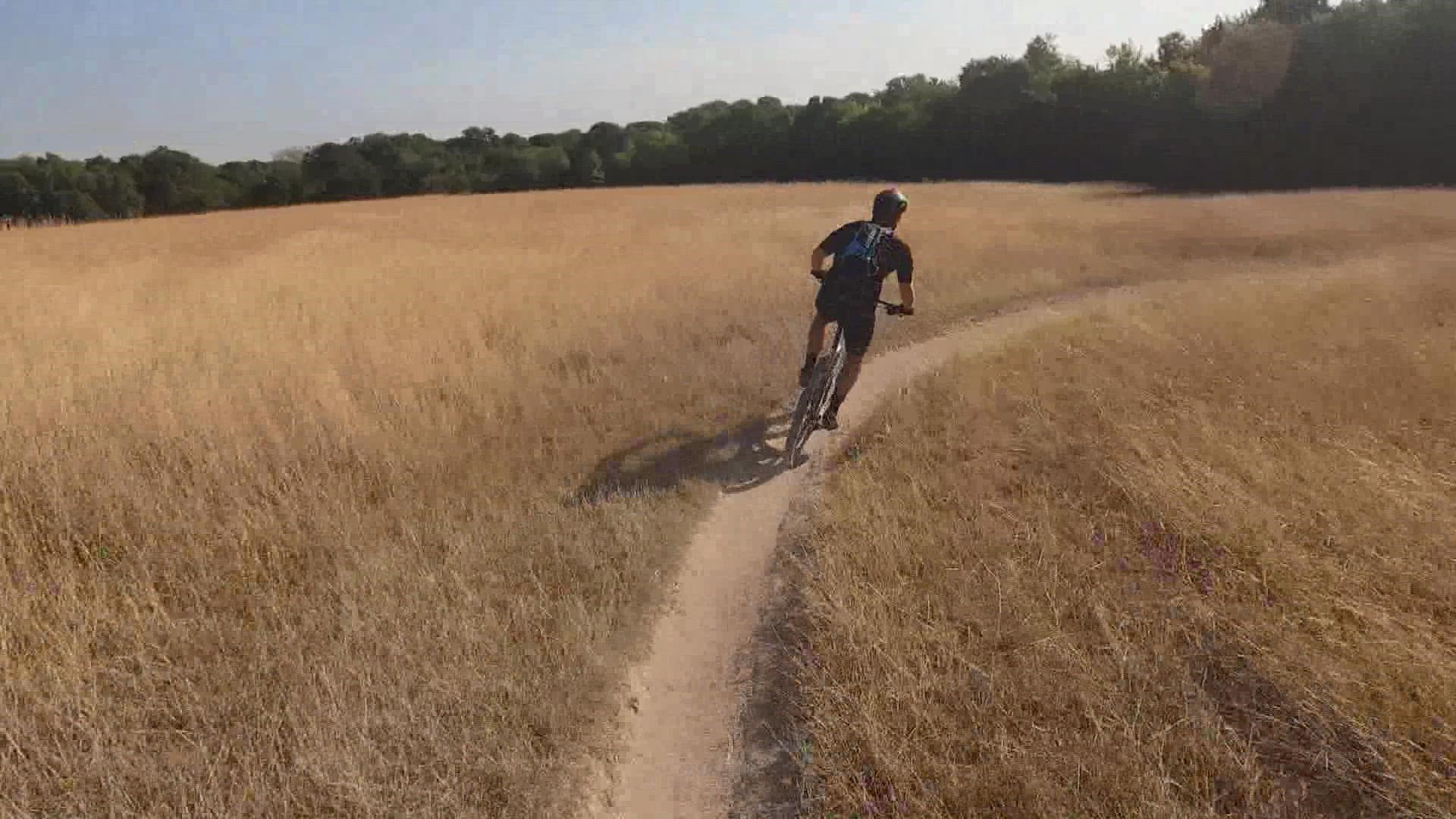CELINA, Texas — The wall full of medals and the shelf of photo finishes at Jamie Bryson's home in Celina might lead you to believe that the tremors that sometimes take over the left side of his body simply couldn't be possible.
"You can see my hand shaking a little bit," he said during our interview. "Even when I'm on the medications."
"Most people when they get diagnosed with Parkinson's, they don't think of somebody like me."
Early onset Parkinson's, first diagnosed when he was just 39.
"I was devastated. I mean, your whole world just goes upside down. You think, OK, I'm a dude who does Ironman triathlons and crazy stuff like that. And now, I'm gonna, like, need a walker? You know you just make this jump from where you're at right now to 'oh my God!'"
And the first doctor he saw told him that his running and racing days were probably over: that it might not be safe for him to do anymore.
"And my wife, at one point she goes, 'he's 39 years old. Like, we have small kids. He can't stop living his life.'"
So while he was searching for a different doctor, he got back on his mountain bike. It helped calm his nerves. But then the next wrinkle in his plan.
"Like if I wasn't active. If I hadn't crashed my mountain bike. That cancer would still be there," he said.
Kidney cancer. And then a successful surgery to remove it. It was Stage 1. The MRI to check for broken ribs after the crash found the tumor in time. But, then one more thing.
"So, that was a really bad time to get COVID," he said of the diagnosis that came shortly after his surgery.


"You just look forward to the next day and just believe that tomorrow's better," he said while also admitting to bouts of depression that come with Parkinson's and the worries that come with it. "It's more of a decision to keep climbing and keep moving forward."
And while moving forward, in his race to find a new doctor, he found Dr. Rodolfo Savica at the Mayo Clinic, a specialist in early onset Parkinson's.
"Exercise is crucial for our brain. Exercise is crucial for our body," Savica said. And, in designing treatment protocols that fit each individual patient, he found that Jamie Bryson, who was already in great physical condition, should be able to keep competing. Dr. Savica designed a plan where Jamie would take the Parkinson's medications that ease his symptoms at specific intervals during a triathlon.
"And there's nothing wrong with that," Dr. Savica said. "Actually something that is quite helpful, in fact, successfully Mr. Bryson continues to do what he likes to do."
"The Mayo Clinic completely changed my life. I cannot understate that," Jamie Bryson said.


Because, still healing from his cancer surgery and his bout with COVID, Bryson competed in an Ironman triathlon in Galveston this past April. As he crossed the finish line he began to weep.
"I guess I would describe it as just gratitude," he said recalling the emotional moment. "Just that in spite of everything I could keep doing that. I was just so grateful."
And grateful that, this weekend, he is in Leadville, Colorado competing in a 100-mile mountain biking race. With his wife and three children cheering him on, he expects the same Parkinson's medication protocol to get him to the finish line again.
"My bike is my happy place for sure. I love riding my bike," he said. "I'm gonna live my life the way I want to live it as long as possible."
"That's the goal," said Dr. Savica. "That is the reason why I go to work and try to help these patients every day. He's showing many patients with his condition, and many other conditions, that you can do it. You can do things."


As he rides, Jamie Bryson knows that there is no known Parkinson's cure. But on that ride, he sometimes forgets about it for at least a while.
"It's like an incredible feeling of loss like you lost your future," he said of the initial diagnosis. "Thankfully I've found people that have shown me otherwise."
While also showing the rest of us that, whatever the diagnosis, there is still a race to be run.

